Filter by

Lived Nation as the History of Experiences and Emotions in Finland, 1800-2000
This open access book uses Finland in the nineteenth and twentieth centuries as an empirical case in order to study the emergence, shaping and renewal of a nation through histories of experience and emotions. It revolves around the following questions: What kinds of experiences have engendered national mobilization and feelings of national belonging? How have political and societal conflicts tu…
- Edition
- 1
- ISBN/ISSN
- 9783030698829
- Collation
- XXI, 392 hlm,: ill, lamp;
- Series Title
- -
- Call Number
- -

Nordic Media Histories of Propaganda and Persuasion
- Edition
- -
- ISBN/ISSN
- 978-3-031-05171-5
- Collation
- -
- Series Title
- -
- Call Number
- XIV, 331
- Edition
- -
- ISBN/ISSN
- 978-3-031-05171-5
- Collation
- -
- Series Title
- -
- Call Number
- XIV, 331
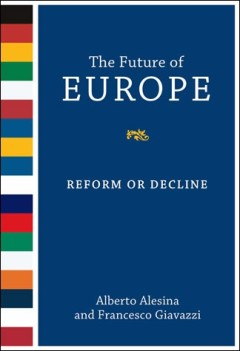
The future of Europe : reform or decline
Includes index.A provocative argument that unless Europe takes serious action soon, its economic and political decline is unavoidable, and a clear statement of the steps Europe must take before it's too late.OCLC-licensed vendor bibliographic record.
- Edition
- -
- ISBN/ISSN
- 9780262266949
- Collation
- 1 online resource (x, 186 pages) :illustrations
- Series Title
- -
- Call Number
- 330 ALE f
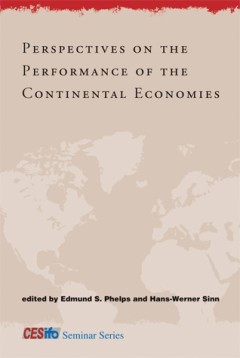
Perspectives on the Performance of the Continental Economies
Economists disagree on what ails the economies of continental western Europe, which are widely perceived to be underperforming in terms of productivity and other metrics. Is it some deficiency in their economic system—in economic institutions or cultural attitudes? Is it some effect of their welfare systems of social insurance and assistance? Or are these systems healthy enough but weighed do…
- Edition
- -
- ISBN/ISSN
- 9780262295413
- Collation
- 1 online resource (vi, 500 pages) :illustrations.
- Series Title
- -
- Call Number
- -
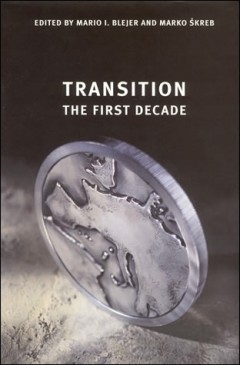
Transition: The First Decade
A comparative analysis of eleven transition economies.The former socialist countries' transition to market economies is one of the momentous transformations in modern history. The pace and degree of success have varied widely, and there is increasing divergence in performance, structure, and institutions among the transition economies. These differences are largely determined by country-specifi…
- Edition
- -
- ISBN/ISSN
- 9780262268707
- Collation
- 1 online resource (vi, 516 pages) :illustrations
- Series Title
- -
- Call Number
- -
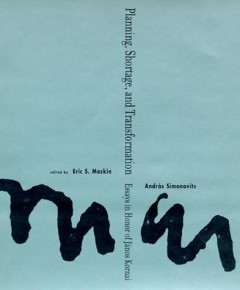
Planning, shortage, and transformation :essays in honor of J?anos Kornai
The three major themes of János Kornai's work reflected in the title of this book—planning, shortage, and transition, or transformation—figure prominently in the essays. The three major themes of János Kornai's work reflected in the title of this book—planning, shortage, and transition, or transformation—figure prominently in the essays. After a philosophical introduction by Edmond…
- Edition
- -
- ISBN/ISSN
- 9780262279222
- Collation
- 1 online resource (xvii, 439 pages) :illustrations
- Series Title
- -
- Call Number
- -

Zickzack
"Zickzack (German for Zig-zag) is an examination of six locations around the German-speaking area of Europe, ranging from the Baltic in the north, to the Tyrollean and French border territories in the south. The texts themselves are each a mixture of small essays, narration, conversations, lists, descriptions of places, and cover a wide range of subject matter - politics, architecture, literatu…
- Edition
- -
- ISBN/ISSN
- 0262370433
- Collation
- 1 online resource.
- Series Title
- -
- Call Number
- -

Comrades no more :the seeds of political change in Eastern Europe
In 1989, Soviet control over Eastern Europe ended when the communist regimes of the Warsaw Pact collapsed. These momentous and largely bloodless events set the stage for the end of the Cold War and ushered in a new era in international politics. Why did communism collapse relatively peacefully in Eastern Europe? Why did these changes occur in 1989, after more than four decades of communist rule…
- Edition
- -
- ISBN/ISSN
- 9780262271349
- Collation
- 1 online resource (x, 305 pages) :1 map.
- Series Title
- -
- Call Number
- -
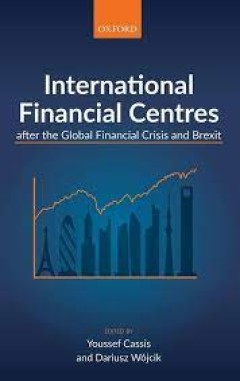
International Financial Centres after the Global Financial Crisis and Brexit
This book gathers leading economic historians, geographers, and social scientists to focus on the developments in key international financial centres following the 2008 Global Financial Crisis and to consider the likely effects of Brexit on these centres. Eleven centres in eight countries are taken into consideration: New York, London, Frankfurt, Paris, Zurich/Geneva, Hong Kong/Shanghai/Beijing…
- Edition
- -
- ISBN/ISSN
- 9780198817314
- Collation
- -
- Series Title
- -
- Call Number
- -
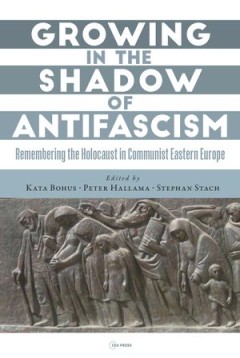
Growing in the shadow of antifascism : remembering the Holocaust in State-…
Reined into the service of the Cold War confrontation, antifascist ideology overshadowed the narrative about the Holocaust in the communist states of Eastern Europe. This led to the Western notion that in the Soviet Bloc there was a systematic suppression of the memory of the mass murder of European Jews. Going beyond disputing the mistaken opposition between “communist falsification” of hi…
- Edition
- -
- ISBN/ISSN
- 9789633864364
- Collation
- -
- Series Title
- -
- Call Number
- 940.53 GRO
 Computer Science, Information & General Works
Computer Science, Information & General Works  Philosophy & Psychology
Philosophy & Psychology  Religion
Religion  Social Sciences
Social Sciences  Language
Language  Pure Science
Pure Science  Applied Sciences
Applied Sciences  Art & Recreation
Art & Recreation  Literature
Literature  History & Geography
History & Geography